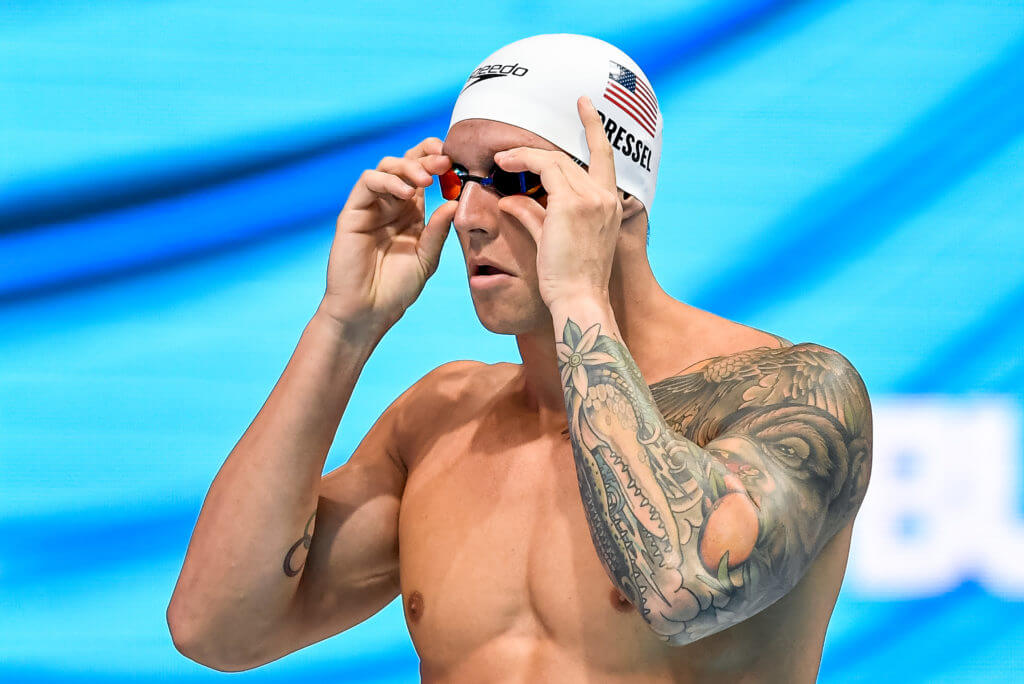Caeleb Dressel Latest to Show the Way In Recognizing Importance of Mental Health, Taking Care of One’s Self

Caeleb Dressel Has Shown Way In Recognizing the Importance of Mental Health, Taking Care of One’s Self
The decision was startling from just about any perspective. In the middle of the World Championships, Caeleb Dressel, the top male swimmer in the world for five years running, was departing the meet because of medical reasons (not related to COVID-19) before competing in most of his main events. Dressel was a team captain for the U.S. team at Worlds, and his performances in two previous appearances at FINA’s showcase meet had been nothing short of breathtaking, so why did he leave?
Because Dressel is more than a really good swimmer. He is an adult human being who realized he needed to put his own health above his swimming. He did not make any public comments for more than two months after leaving Budapest until he posted to his Instagram page over the weekend. In that short blurb, Dressel revealed he had not been in a pool since Worlds. He missed swimming, but he was happy.
Dressel added, “I know I can have swimming and happiness. I had them both at one point in my life and I’m working on it. If you need a break, take one.” Finally, he insisted that he will return to the pool, although he gave no further details.
Good for him. Good for this six-time Olympic gold medalist to recognize that medals and results are not the be-all-end-all and making the tough decision to prioritize himself over artificial achievements like medal counts and records. Swimming is his job, but life called, and Dressel had to answer to make sure he was truth to himself.
In a different time, Dressel might have been criticized for his decision or called a quitter, from outside onlookers or even from his teammates that were remaining at the meet in Budapest. Internally, that was not the case at all. U.S. National Team Managing Director Lindsay Mintenko said of Dressel’s U.S. teammates, “They were incredibly supportive of the decision that was made, of Caeleb as a person.”
Obviously, swimming matters to these individuals who had made so many sacrifices to perform at their best and represent their country at the biggest meet of the year, but even all-important World Championships medals paled in comparison to mental health, and the U.S. swimmers had the maturity to realize that.
It has only been within the past several years that mental health has come into focus within the sports world, including swimming. Big-name athletes have spoken openly about mental health, and as a result, being open about one’s issues has become a sign of courage rather than shame. Mental health concerns are pervasive through all levels of sport and society, and a young individual who sees a public-facing role model speak out about their own issues might be more willing to seek the all-important help that he or she needs.
Former elite swimmers such as Michael Phelps and Allison Schmitt played huge roles in shifting the public narrative around mental health in sports, and one year before Dressel’s decision at World Championships, gymnastics star Simone Biles withdrew from most of her events at the Tokyo Olympics because of health concerns. Biles received some blowback for her withdrawal, but she absolutely made the right call. It simply was not worth it to risk her own health and safety for a sporting triumph.
Swimming fans hope for Dressel’s return to the pool, for another chance to witness his marvelous athletic gifts on display, but his own personal health and happiness takes precedent — and rightfully so. Dressel made the brave decision in pulling out of the World Championships.
Shortly Biles withdrew from her events in Tokyo, Phelps appeared on an NBC Sports broadcast and expressed full support for her. “We’re humans,” Phelps said. “Nobody is perfect. It is OK to not be OK. It’s OK to go through ups and downs and emotional roller coasters. I think the biggest thing is we all need to ask for help when we go through those times. For me, personally, it was something that was very challenging. It was hard for me to ask for help.”
Let’s hope that decisions like the one Biles made last year and the one Dressel made this summer make the task of asking for help a little easier.
Through his years in swimming and his many gold medals and records set, Dressel has inspired countless young swimmers to be better in the pool, and his actions this June are just as worthy of praise. May every athlete in Dressel’s position, facing a crossroads and a decision between winning medals and being happy, will make the same decision to prioritize themselves.




While it is the right decision, it was not handled right. We can only send so many swimmers per event, the right thing to do would have been to withdraw prior to competition so the alternate could go. Now we have robbed a swimmer of this vital experience. And the team left behind short for crucial relays and individual swims. I understand he thought he could handle it, but it should have been discussed, with Coaches and families before. Real life jobs have a process to complete before you just leave work, and unfortunately there are also consequences that must be faced in the real world, if you choose to leave work. Swimming, especially when professionally needs to follow suit.